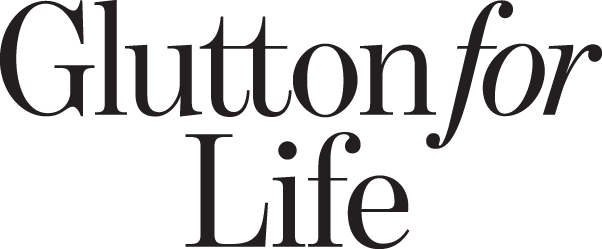We went back to visit the surgeon because G's pain level had become rather worrisome. Fortunately he doesn't have a clot or deep vein thrombosis, but he did come away with some new painkillers. (Hello, Sister Morphine.) And I came away with several treats from the hospital snack shop. What with the crutches, the pillows, the xrays and G's backpack, I couldn't bring the camera with me, but later I snapped some photos of my finds on the tiny terrace off our room. For the most part, we've been flat on our backs (healing is a team sport), watching bad movies and the occasional itunes download (loving The Killing--is AMC the new HBO?!), and, yes, eating crackers in bed. Fortunately, they've been some quality Indonesian crackers, a national specialty that puts Ritz to shame.
Read More...
Twitter @glutton4life
5.21.10 Wafer Thin
As I've mentioned before, ours is a gluten-free household. This does not mean we don't LOVE bread but G, my husband, was diagnosed as "gluten intolerant" a couple of years ago and tries his best to eat accordingly. (I support him in this, and feel it has done me a world of good as well.) Gluten is the gluey, stretchy stuff that gives products made from wheat, rye and barley their wonderfully meaty chew. Sadly, for celiacs and people with gluten intolerance, this is the same stuff that irritates the villi—microscopic finger-like projections that line the inner wall of the small intestine and aid in the absorption of food. In learning about this condition, I've come across a lot of information to indicate that refined highly processed flours are not so good for any of us. (I believe I already told you that my nutritionist, Sally Kravich, equates eating white flour with smearing your colon with that paste we used to make in elementary school.) The rise of inflammatory diseases like arthritis, colitis, IBS and even tooth decay is directly associated with the rise of agriculture and industry. Just try cutting out grains and starches from your diet for even 2 weeks to see how your aches and pains diminish. It's pretty amazing. But didn't our ancestors manage just fine eating grains, you ask? Actually, their approach to grains and baking was quite different from ours. Virtually all preindustrialized people soaked or fermented their grains before making them into porridge or bread or cake. Think how Indians ferment rice or lentils before making idlis and dosas; or how American pioneers made their breads and pancakes with sourdough starter. Way back when, instructions on the box of oatmeal even called for an overnight soak. Here's the science behind it (with thanks to Nourishing Traditions for breaking it down so intelligibly).
Read More...
Read More...








